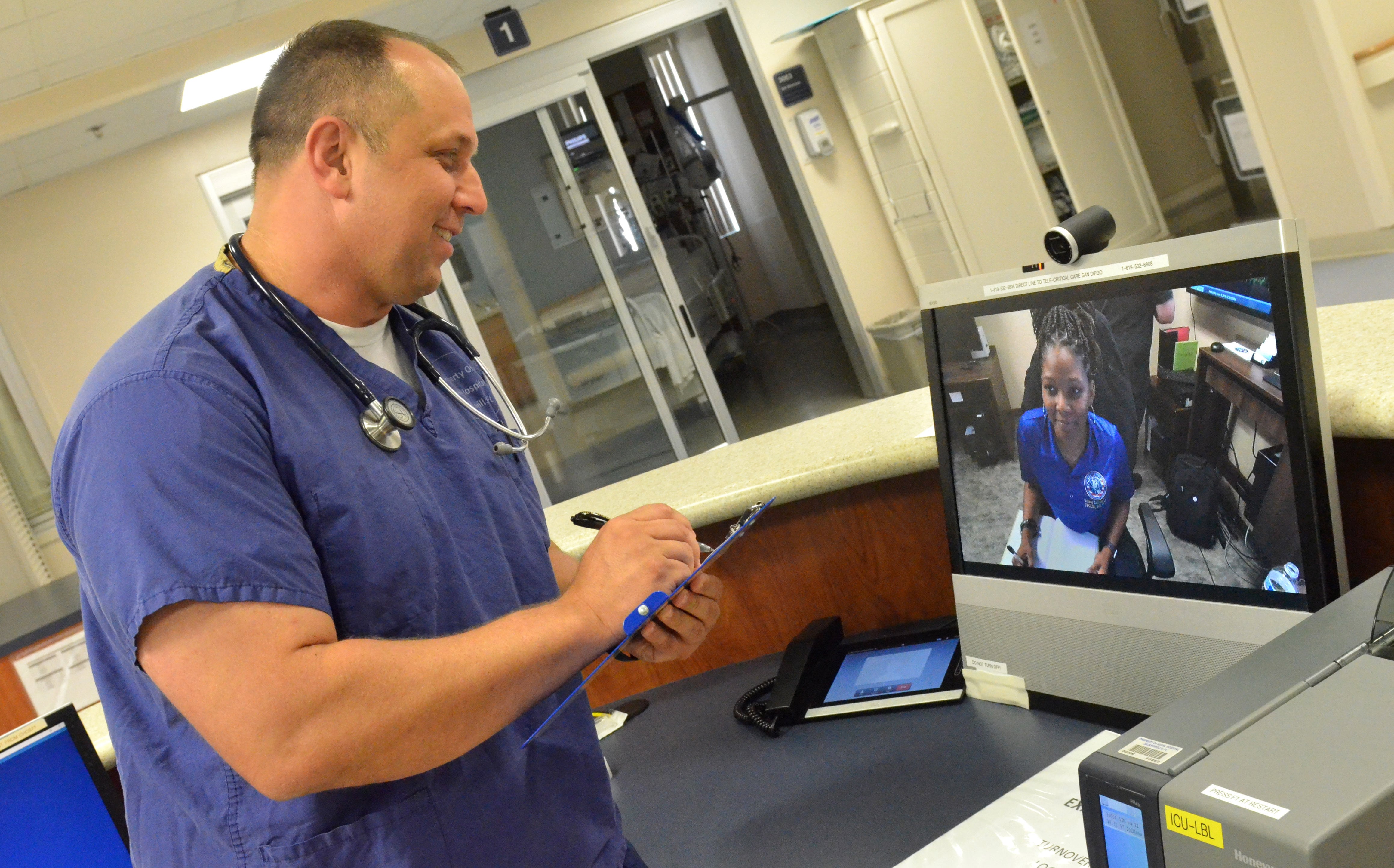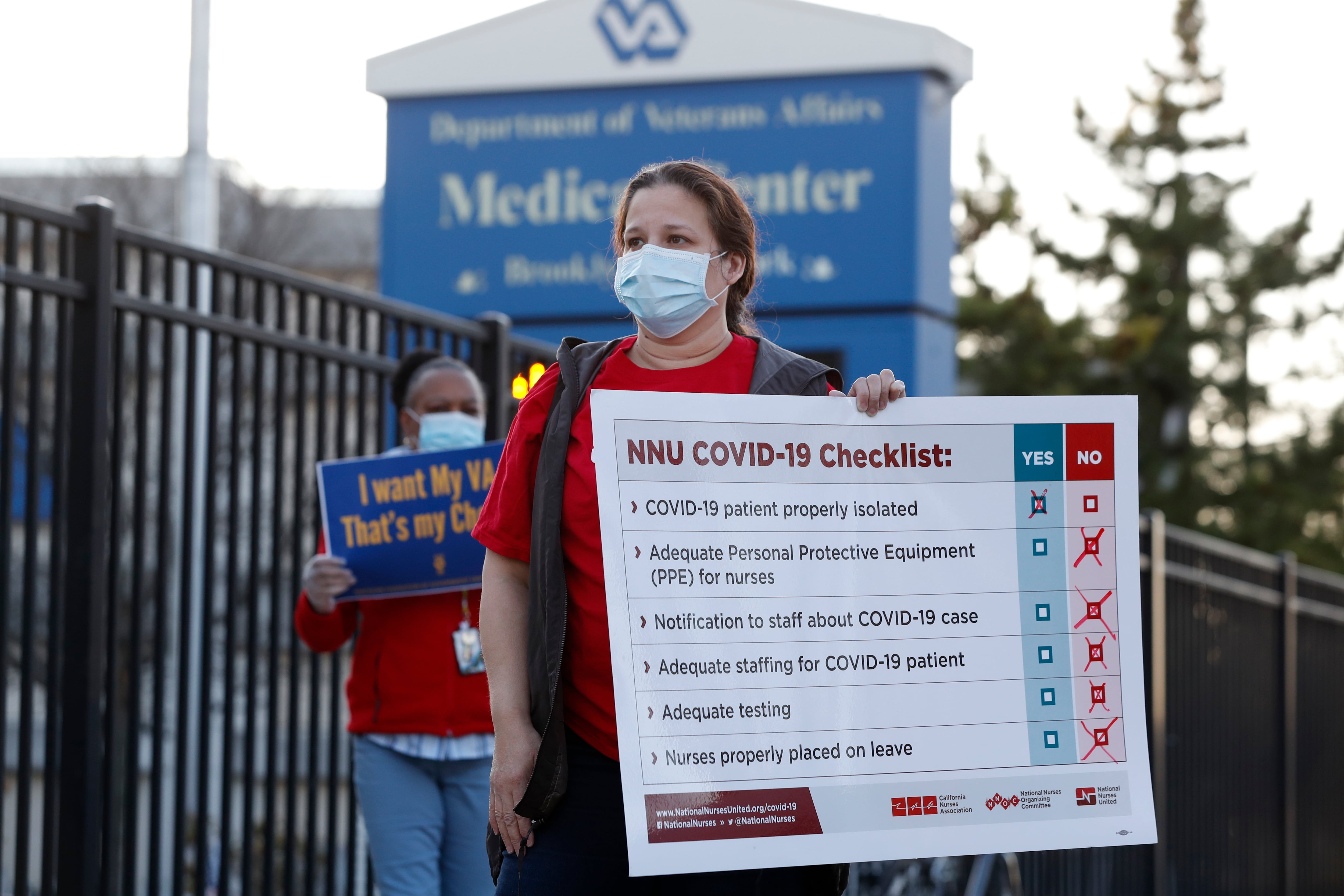As veterans across the country cope with the ongoing effects of the coronavirus outbreak, veterans organizations are scrambling to find ways to help.
On Tuesday, officials from Iraq and Afghanistan Veterans of America announced an expansion of their Quick Reaction Force program, designed to connect veterans with local resources who can answer benefits questions, job issues and other challenges. The move was originally planned for later this summer, but the coronavirus crisis moved those plans up.
“We saw a big increase in use in the first quarter, and we imagine that need is going to continue to rise,” said Sean Ullman, chief development officer for IAVA. “Right now our biggest issues are job loss and navigating benefits, related to coronavirus.”
RELATED

Similarly, this week officials from the American Legion reconfigured their Buddy Check program launched last year to refocus on the current pandemic. Local posts are being tasked with outreach to veterans throughout their communities, to ensure individuals are healthy and still connected despite illness-mandated isolation.
“Legionnaires are using the phone, email and social media to safely find out how these veterans are doing and what we can do to help them,” American Legion National Commander James W. “Bill” Oxford said in a statement.
“They might need something from the store or pharmacy. Sometimes, for a veteran who is alone and on orders to stay home, the most important thing is a phone call.”
Other groups have adopted a direct financial assistance approach to the current crisis. Last week, officials from Wounded Warrior Project announced they will award grants up to $1,000 for groceries, rent payments, and other essential expenses to injured veterans hurt by the ongoing pandemic. Individuals must be members of the group to apply for the money.
On Monday, officials from Disabled American Veterans followed suit, offering $250 grants to struggling veterans. Any veteran with a service-connected disability can apply for the assistance, through the group’s web site.
The PenFed Foundation has announced its own $1,500 grant for active-duty service members, Guard and Reserve troops, and veterans. Priority for that program will be families who have lost their primary income in the last few weeks. Officials at Semper Fi Fund have been providing gift cards and food baskets to military families in addition to direct financial aid.
Various state agencies have also begun their own outreach programs. Late last month, the Minnesota State Legislature approved special funding for veterans hurt by business closings and employment changes due to coronavirus. The $1,000 one-time emergency payments are available to state residents who are veterans or a surviving spouse of a deceased veteran.
Indiana has expanded its rules for the state’s Military Family Relief Fund, which is normally open only to veterans who served during war time. In light of recent events, the program is now open to all veterans affected by the virus’ impact, and veterans who previously received financial assistance may be able to get additional funds.
And the New York City Veterans Alliance has been providing direct assistance to veterans and families in NYC since mid-March, thanks to direct funding from the New York State Health Foundation.
RELATED

But Ullman said sometimes the best help assistance veterans can receive is assistance navigating already existing benefits from the Department of Veterans Affairs.
VA officials have said that benefits payments will continue as normal through the pandemic response, and by direction of the White House the department has extended a host of deadlines for submitting and revising claims.
To mitigate the need to visit department offices, VA has waived the need for ink signatures on documents and promised relaxed rules for submitting some paperwork.
Veterans can review those changes and other benefits adjustments at the VA web site.
Leo covers Congress, Veterans Affairs and the White House for Military Times. He has covered Washington, D.C. since 2004, focusing on military personnel and veterans policies. His work has earned numerous honors, including a 2009 Polk award, a 2010 National Headliner Award, the IAVA Leadership in Journalism award and the VFW News Media award.




